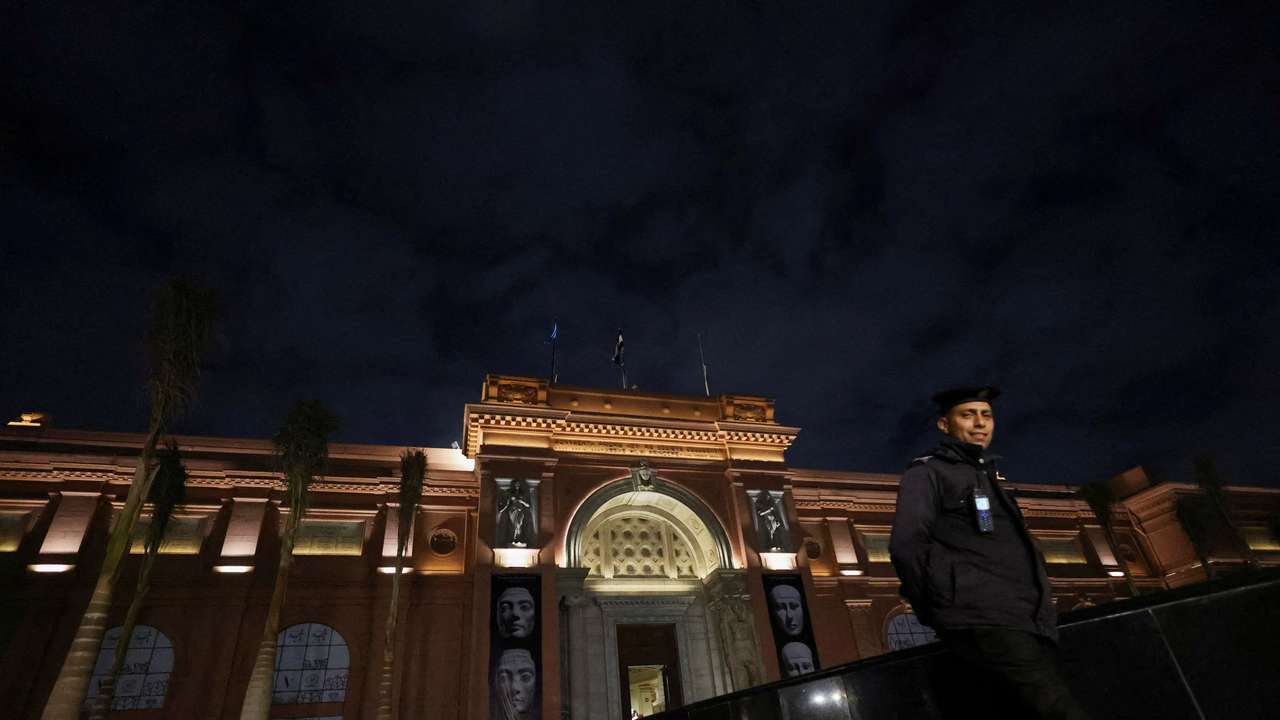Egypt Roundup: Homosexuality concerns, Milky Way galaxy connection, reclaimed ancient statue

Homosexuality concerns
Egypt's National Council for Childhood and Motherhood (NCCM) complained about a German school in Cairo, accusing it of purportedly endorsing homosexuality through biology lessons. The Ministry of Education has initiated an investigation into these allegations, firmly rejecting any advocacy for ideas that oppose societal norms. The backdrop for this controversy includes a wider context of ongoing discrimination and governmental crackdowns on the LGBTQ+ community within Egypt, The New Arab. The country's stance is evident in its ban on films featuring homosexual themes, with any perceived promotion of such content sparking considerable backlash. Despite the religious authorities' disapproval of same-sex relationships in Egypt, there is a growing openness to discussing the topic both within the country and across the Arab world.
Ancient Egypt and the Milky Way galaxy connection
A recent study, reported by LADbible, reveals that ancient Egyptians possessed knowledge of the Milky Way galaxy and its association with the sky-goddess Nut. Conducted by an astrophysicist from the University of Portsmouth, this research sheds new light on the intricate relationship between Nut and the cosmos. In ancient Egyptian artwork, Nut was often depicted as a celestial figure adorned with stars, with her role in safeguarding Earth from floods intricately linked to the portrayal of the Milky Way in the night sky. Furthermore, the study unveils connections between Nut's significance in the afterlife and the annual migration patterns of birds, findings that resonate with how various cultures interpret the Milky Way. This research underscores the universal language of astronomy, showcasing its ability to bridge humanity's understanding across diverse cultures, geographical boundaries, and epochs of time.
Egypt reclaims stolen statue of King Ramses II
Egypt celebrates the return of a 3,400-year-old statue of King Ramses II, which had been stolen and smuggled out of the country three decades ago. According to CTV News, the artefact will undergo restoration before being exhibited at the Egyptian Museum in Cairo. Originally taken from the Ramses II temple in Abydos, Southern Egypt, in the late 1980s or early 1990s, the statue resurfaced for sale in 2013. With the assistance of Swiss authorities, Egypt successfully reclaimed the piece, establishing its rightful ownership through collaborative efforts with Switzerland and ensuring its repatriation.
Migration governance
On April 22, Foreign Minister Sameh Shoukry emphasised Egypt's commitment to implementing a comprehensive strategy for migration governance. In a meeting with the Director-General of the UN International Organisation for Migration (IOM), Amy Pope, Shoukry sought the organisation's assistance in supporting this approach. As reported by Ahram Online, Shoukry articulated Egypt's vision for a multifaceted approach that extends beyond security considerations to encompass development factors and the underlying causes of illegal immigration. Ministry spokesperson Ahmed Abu Zeid elaborated that Egypt's strategy aims to address the full spectrum of migration issues. In January, Egypt signalled its intent to commence the documentation of refugees and immigrants residing in the country, estimated at 8-9 million individuals hailing from 133 different nations.
‘False Israeli allegations’ about smuggling weapons
Egypt has strongly denied Israeli allegations of smuggling weapons into Gaza from Egyptian territory. Diaa Rashwan, the head of Egypt's State Information Service (SIS), declared in a statement on April 22 that all such allegations, including claims about the existence of tunnels between both sides of the border, are entirely false. The statement also called on Israel to stop making false accusations and to respect the peace treaty. As reported by Egypt Today, Rashwan explained that: ‘All countries of the world know well the extent of the efforts made by Egypt in the last 10 years, to achieve security and stability in Sinai and enhance security on the border between Egyptian Rafah and the Gaza Strip, as Egypt itself had suffered greatly from these tunnels during the fierce confrontation with terrorist groups in Sinai after the overthrow of the Brotherhood regime in June 2013 and until 2020, it represented a means for smuggling fighters and weapons to Sinai to carry out terrorist operations that claimed the lives of more than 3,000 martyrs from the army, police, and civilians, and more than 13,000 injured.